The reports for an employee performance evaluation play a crucial role in the success of any organization. They provide a comprehensive assessment of an employee’s performance, highlighting their strengths, weaknesses, and areas for improvement. These reports are essential for both the employee and the employer, as they help in promoting growth, development, and productivity in the workplace.
Performance evaluation reports are usually conducted on an annual or biannual basis, but they can also be done more frequently, depending on the organization’s needs. The evaluation process involves assessing various aspects of an employee’s performance, such as their job knowledge, skills, communication, teamwork, and overall job performance. The report provides valuable feedback to the employee and helps them understand how they are performing in their role.
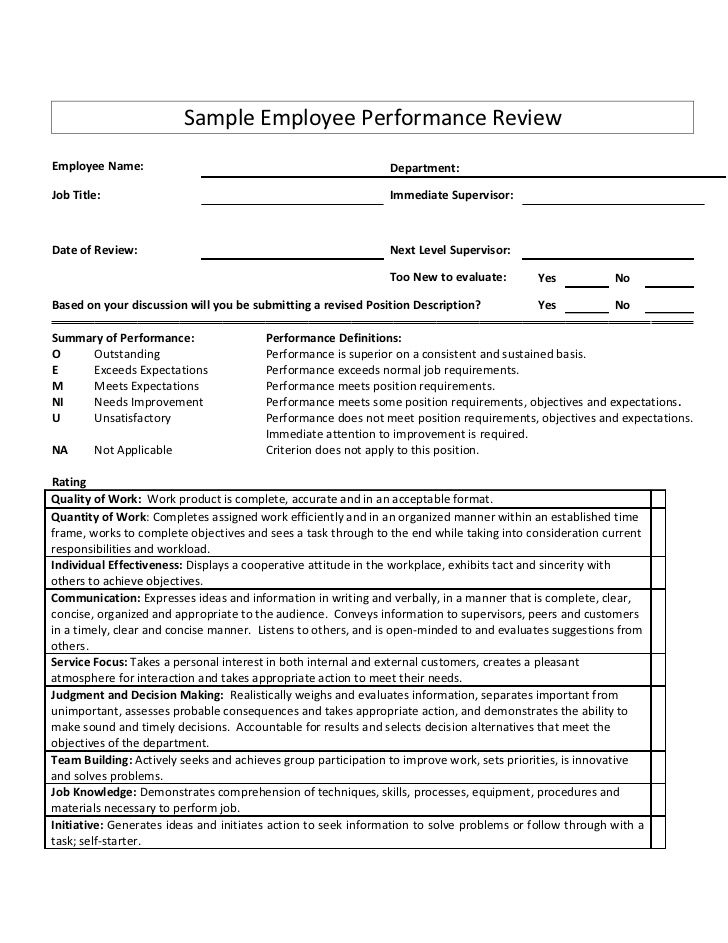
Why Are Employee Performance Evaluation Reports Important?
Employee performance evaluation reports are important for several reasons:
1. Assessing Performance: These reports provide a systematic way to evaluate an employee’s performance and measure it against predetermined goals and objectives. It helps in identifying areas where the employee is excelling and areas where improvement is needed.
2. Identifying Training and Development Needs: A performance evaluation report helps identify any skill gaps or areas where additional training or development is required. This allows the organization to provide targeted training programs to enhance the employee’s skills and knowledge.
3. Motivating Employees: Performance evaluation reports can serve as a motivational tool for employees. By recognizing their achievements and providing constructive feedback, employees feel valued and motivated to perform better.
4. Facilitating Communication: These reports provide a platform for open and honest communication between employees and their supervisors. It allows for a two-way dialogue where both parties can discuss performance, set goals, and address any concerns or issues.
5. Promoting Career Growth: Employee performance evaluation reports help in identifying high-performing employees who have the potential for career advancement. It allows the organization to recognize and reward top performers and provide them with opportunities for growth and development.
6. Improving Organizational Performance: By evaluating individual employee performance, organizations can identify areas where they can improve as a whole. It helps in identifying any systemic issues or challenges that may be hindering overall performance and productivity.
7. Ensuring Fairness and Objectivity: Performance evaluation reports provide a fair and objective assessment of an employee’s performance. They are based on specific criteria and measurable goals, ensuring that evaluations are consistent and unbiased.
8. Retaining Top Talent: Regular performance evaluations and feedback help in retaining top talent. Employees who receive recognition and opportunities for growth are more likely to stay with the organization and contribute to its long-term success.
How to Conduct an Effective Employee Performance Evaluation
Conducting an effective employee performance evaluation requires careful planning and execution. Here are some steps to follow:
1. Set Clear Performance Goals
Before conducting an evaluation, it’s important to set clear performance goals for each employee. These goals should be specific, measurable, attainable, relevant, and time-bound (SMART). Communicate these goals to the employees and ensure they understand what is expected of them.
2. Gather Relevant Data
Collect relevant data on the employee’s performance, including their job responsibilities, projects completed, feedback from colleagues and customers, and any other relevant information. This data will provide a comprehensive view of the employee’s performance and help in making an accurate evaluation.
3. Use a Standard Evaluation Form
Use a standardized evaluation form that covers all relevant aspects of the employee’s performance. This ensures consistency and fairness in the evaluation process. The form should include sections for rating the employee’s performance in various areas and providing comments or feedback.
4. Conduct a Performance Review Meeting
Schedule a performance review meeting with the employee to discuss the evaluation report. Provide them with a copy of the report in advance so they have time to review it. During the meeting, discuss the employee’s strengths, and areas for improvement, and set goals for the future. Encourage open and honest communication and address any concerns or questions the employee may have.
5. Provide Ongoing Feedback and Support
Performance evaluations should not be a one-time event. Provide ongoing feedback and support to the employee throughout the year. Regularly check in with them to discuss their progress, provide guidance, and address any issues that may arise. This continuous feedback helps in improving performance and ensures that the employee stays on track toward their goals.
6. Recognize and Reward Performance
Recognize and reward employees who consistently perform well. This can be done through performance-based incentives, promotions, or other forms of recognition. Acknowledging and celebrating top performers helps in creating a positive work culture and motivates others to excel.
Sample Employee Performance Evaluation Report
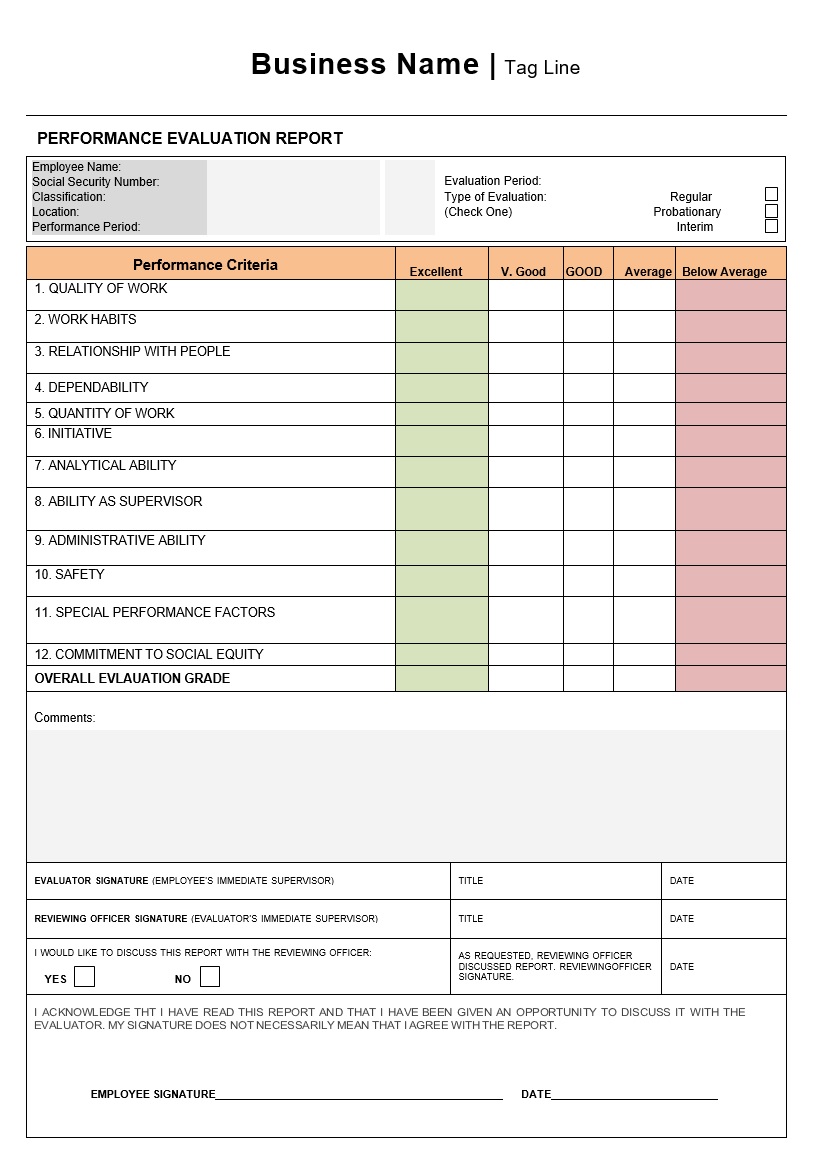
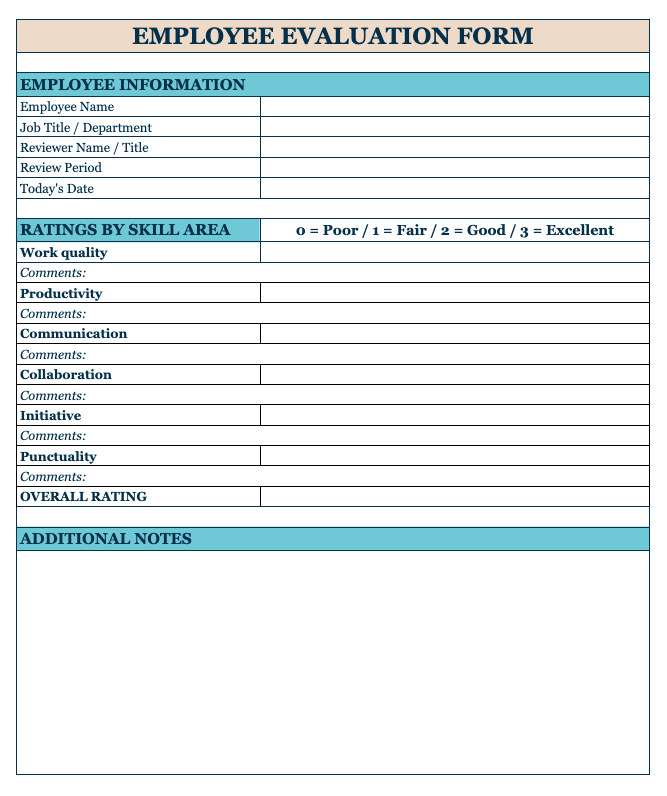
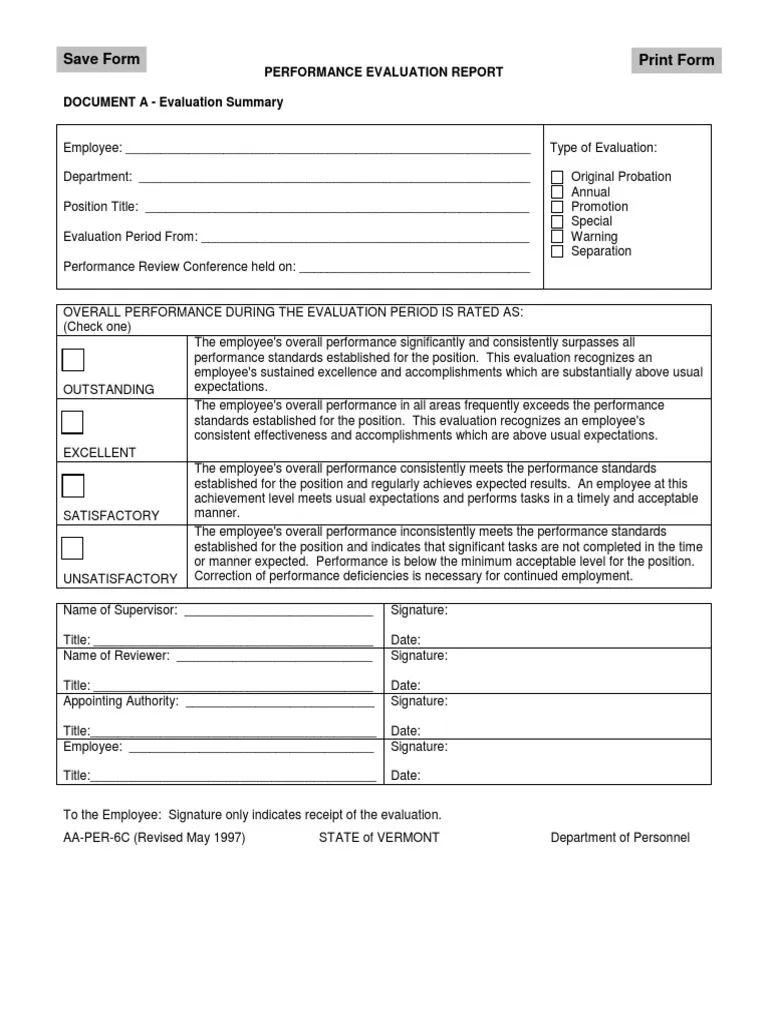
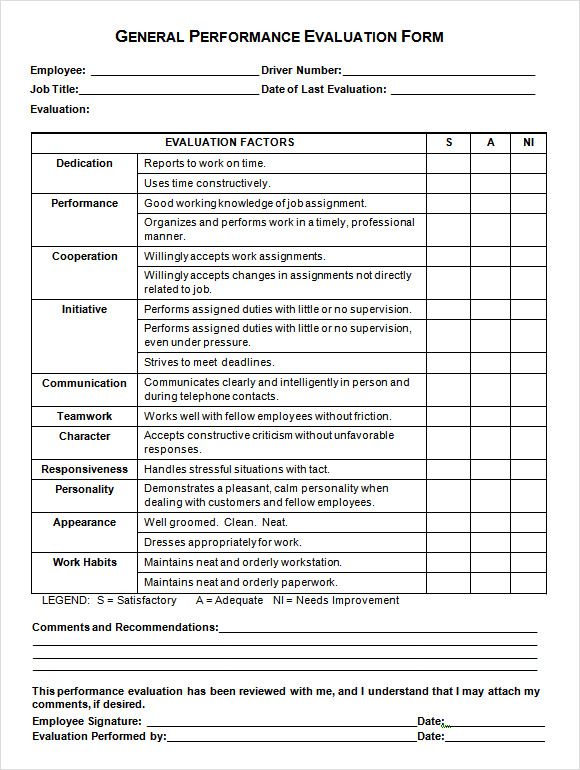
Below is a sample employee performance evaluation report:
- Employee Name: John Smith
- Position: Sales Executive
- Evaluation Period: January 1, 2022 – June 30, 2022
1. Job Knowledge
John demonstrates a strong understanding of his role and responsibilities as a sales executive. He consistently meets and exceeds his sales targets and has a deep knowledge of our products and services. He can effectively communicate the benefits of our offerings to potential customers.
2. Communication Skills
John excels in his communication skills. He is an active listener and effectively communicates with both customers and colleagues. He can articulate complex ideas and concepts clearly and concisely. His communication skills contribute to his success in building and maintaining strong customer relationships.
3. Teamwork
John is a valuable team member and collaborates effectively with his colleagues. He willingly shares his knowledge and expertise with others and actively contributes to team goals. He is supportive of his colleagues and fosters a positive team environment.
4. Job Performance
John consistently delivers high-quality work and meets deadlines. He is proactive in seeking out new business opportunities and has successfully closed several major deals. His performance has contributed significantly to the overall success of the sales team.
5. Areas for Improvement
While John’s performance is exemplary overall, there are a few areas where he can further improve. He could benefit from enhancing his presentation skills to effectively pitch our products and services to larger audiences. Additionally, he could work on developing his leadership skills to take on more responsibilities in the future.
6. Goals for the Next Evaluation Period
Based on the evaluation, the following goals have been set for John for the next evaluation period:
- Attend a presentation skills training program to enhance his ability to present to larger audiences.
- Take on a leadership role in a cross-functional project to further develop his leadership skills.
- Increase sales targets by 10% for the next quarter.
7. Overall Rating
Based on his performance, John’s overall rating for this evaluation period is “Exceeds Expectations.” His dedication, strong work ethic, and consistent performance make him a valuable asset to the organization.
Conclusion
Employee performance evaluation reports are an essential tool for organizations to assess, develop, and motivate their employees. By providing valuable feedback, setting clear goals, and recognizing top performers, organizations can create a culture of excellence and drive success. Conducting regular performance evaluations and providing ongoing feedback helps employees grow and develop, ultimately contributing to the overall success of the organization.
Employee Performance Evaluation Report Form – Download